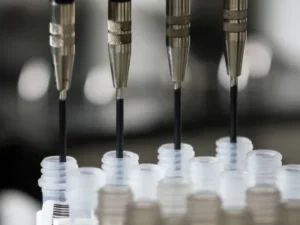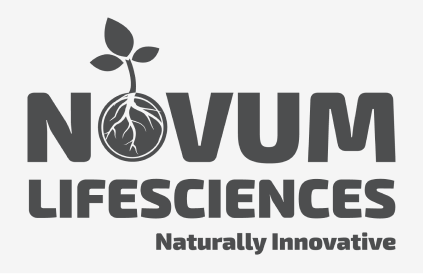Symbio Laboratories’ investment in technology and processes, and the commitment to deliver our customers’ results sooner than ever continues with our NATA accreditation for the use of MALDI-TOF detection.
What is MALDI-ToF?
 Matrix-assisted laser desorption/ionisation time of flight, or MALDI-ToF, is a method of mass spectrometry used for the identification of difficult to culture bacteria, with a much shorter timeframe than traditional, phenotypic and gene sequencing identification techniques.
Matrix-assisted laser desorption/ionisation time of flight, or MALDI-ToF, is a method of mass spectrometry used for the identification of difficult to culture bacteria, with a much shorter timeframe than traditional, phenotypic and gene sequencing identification techniques.
MALDI-ToF detection uses precisely validated equipment to scan the molecular “fingerprint” of a sample and match it against a database, accurately identifying the micro-organism at species and genus level in a fraction of the time previously required.
While traditional phenotypic and gene-sequencing techniques can require at least 3 further days for confirmation after detection, with MALDI-ToF technology Symbio Laboratories is equipped to provide clients with the vital information they need to act, when they need it most.
Quick Confirmation of Pathogens via MALDI-ToF
The threat posed by pathogen contamination requires constant vigilance. Whether borne from the processing or packaging environments, or the ingredients involved in the initial manufacturing process, pathogens such as Listeria and Salmonella present in food and environment can have disastrous consequences for public health and the companies involved in manufacturing and packaging the product.
Another important known pathogen for public health concern is Legionella, is known to localise in cooling tower waters and distribute through air conditioning systems, and has already caused multiple outbreaks in Australia.
Typically, analytical detection of these bacteria has involved separate “Screening for Detection” and “Confirmation” stages, the latter “Confirmation” stage with a minimum duration of 3 to 4 days following an incubation period.
Based on Australian standards, incubation times for Salmonella, Listeria and Legionella have been 3 days, 5 days and 7 days respectively, with the added 3-4 days confirmation period following. This can leave companies waiting up to 10 days for confirmation of a dangerous pathogen. A gruelling wait, it also risks the delay of shipments and incurring additional costs on behalf of the company, or the spread of outbreaks such as Legionnaires.
Symbio Laboratories is NATA accredited for MALDI-ToF confirmation of Listeria, Salmonella and Legionella, allowing for the confirmation to genus level for Listeria and Salmonella, and species level for Legionella in minutes, rather than days once a presumptive positive is detected.
| Pathogen | Incubation following presumptive colony | Traditional Confirmation | MALDI-ToF Confirmation |
| Salmonella | 3 Days | + 3 Days | From 15 Minutes |
| Listeria | 5 Days | + 4 Days | From 15 Minutes |
| Legionella | 7 Days | + 3 Days | From 15 Minutes |
Faster Analysis with MALDI-ToF Detection
Generally speaking, receiving faster analysis benefits everyone, regardless of industry.
For food processors, an extra 3 days’ notice for detection of Salmonella could save thousands in fines and loss of product.
A faster turnaround by 3 days for hospitals and aged care facilities could prevent a catastrophic outbreak of Legionnaires, resulting in disastrous public perception, heavy penalties, and even loss of life.
This method of identification allows Symbio Laboratories to provide our clients with the accurate analysis they require to ensure their products and environments are safe, faster, and helps ensure the safety of their workers and the Australian public.


